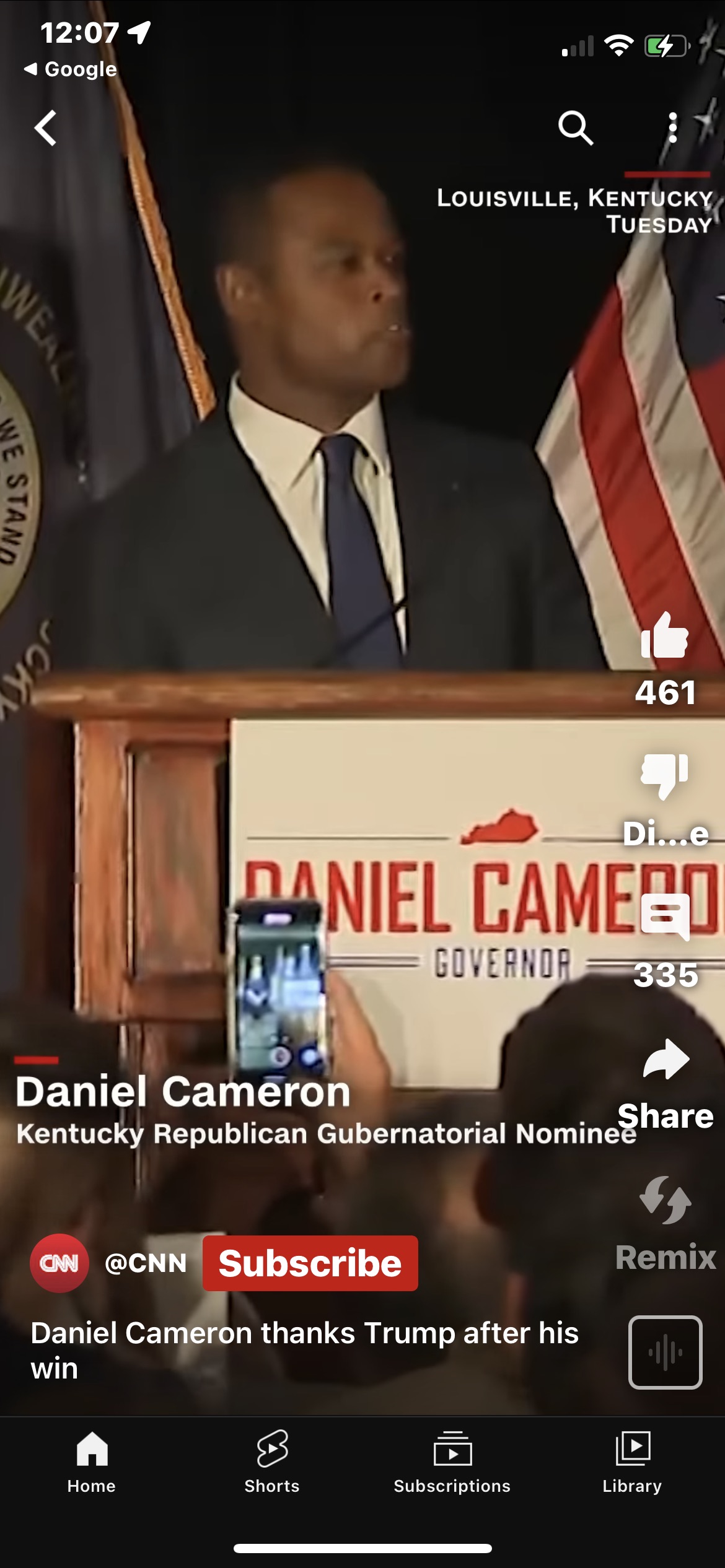
An addendum to a recent post addressing the likely impact of a successful run by GOP gubernatorial candidate Daniel Cameron on open government in Kentucky — and further evidence of his disdain for Kentucky’s open government laws.
➡️ 2020 | Cameron abandons effort to clarify the attorney general's role in open records appeals
Early in his administration, AG Cameron intentionally abandoned an effort by his immediate predecessor, former AG now Governor Andy Beshear, to clarify the Attorney General's statutory authority to "request additional documentation from the agency for substantiation" and to conduct confidential review of the underlying public records in dispute in an open records appeal to his office.
https://apps.legislature.ky.gov/law/statutes/statute.aspx?id=51394
(See subsection (5)(c))
That statute is a critical tool in the Attorney General’s ability to discharge his statutory duty to review an open records appeal and issue within twenty business days, "a written decision stating whether the agency violated provisions of KRS 61.870 to 61.884.”
https://apps.legislature.ky.gov/law/statutes/statute.aspx?id=51394
(See subsection (2))
In 2017, Beshear intervened in a case involving access to sexual misconduct records at Western Kentucky University filed against the College Heights Herald -- a case still clogging the courts as the parties spar over the appropriate scope of redaction.
https://splc.org/2017/03/kentucky-ag-seeks-to-intervene-in-wku-ksu-laws…
The University of Kentucky had modeled the bad behavior to which Beshear objected in an earlier case by refusing to respond to the AG's open records staff requests and produce documentation for confidential internal review. This "severely impaired" the OAG’s “ability to render a reasoned open records decision under statute” and resulted in a decision against UK.
https://www.ag.ky.gov/Resources/orom/2016/16ORD161.doc
The dispute with its student newspaper, The Kernel, involved access to records of the university’s investigation into a UK professor’s sexual misconduct. The case was ultimately resolved against UK in a scathing Kentucky Supreme Court opinion.
https://casetext.com/case/univ-of-ky-v-kernel-press-inc
WKU and Kentucky State University followed UK's bad example in subsequent open records disputes involving their respective universities.
The KSU case was resolved. Not so, the WKU case.
https://splc.org/2017/03/kentucky-ag-seeks-to-intervene-in-wku-ksu-laws…
Cameron inherited the WKU open records case from Beshear. He did not, however, inherit Beshear's commitment to repudiating public universities' efforts "to turn Kentucky’s Open Records Act into a ‘trust me’ law."
"At the request of Daniel Cameron, the state’s attorney general,” the Warren Circuit Court dismissed Beshear’s intervening complaint in Western Kentucky University v The College Heights Herald in October 2020.
https://wkuherald.com/13749/news/attorney-general-intervening-complaint…
Why seek clarification of the scope of his statutory authority to review open records appeals if, as the new attorney general, you intend to use that authority sparingly -- if at all?
Broadly speaking, Cameron is content to trust public agencies, including public universities.
➡️ 2023 | Cameron abandons neutral role in open records disputes
In February, 2023, we learned that Cameron had filed a Motion for Leave to File Amicus Memorandum Supporting Motion for Discretionary Review in Courier Journal, Inc. v Shively Police Department.
http://opinions.kycourts.net/COA/2021-CA-001120.PDF
In effect, the attorney general abandoned his neutral role as an open records dispute mediator to advocate on behalf of the Shively Police Department and its erroneous treatment of a independent investigative records disclosure provision -- KRS 17.150(2) -- as a nondisclosure provision incorporated into the open records law.
https://apps.legislature.ky.gov/law/statutes/statute.aspx?id=46877 (See Subsection (2))
Cameron is not the first attorney general to adopt the erroneous interpretation of KRS 17.150(2) to permit nondisclosure of all records in an open investigation (repudiated by the Court of Appeals in the Shively Police Department opinion), but he is the first to “participate as a partisan in [an open records] appeal.”
Writing in opposition to the Attorney General’s motion to file a brief in support of the Shively Police Department’s request that the Supreme Court review the Court of Appeals’ opinion, Courier attorneys Jon Fleischaker, Michael Abate, and Rick Adams asserted:
“While it may not seem unusual for the Attorney General to participate as amicus before this Court, it is highly unusual for the Attorney General to seek to do so in an Open Records Case. And there is good reason for that. In the system created by the General Assembly, the Attorney General’s office is supposed to serve as a neutral arbiter for administrative appeals, allowing members of the public and media to quickly and inexpensively hold agencies to account for denying records requests. It is not supposed to be an advocate when those interpretations are challenged in court.
“The Attorney General has now abandoned that neutral role.”
Echoing this view, the Kentucky Open Government Coalition wrote:
"The Attorney General’s action is unprecedented. In my 25 years as an assistant attorney general, I witnessed nothing comparable.
“Beshear sought to enforce his authority to confidentially review the records in dispute in a pending appeal under the cited statute and regulation to secure that role. [Cameron seeks] to abdicate his role as a neutral open records adjudicator -- not to secure that role."
https://kyopengov.org/blog/attorney-general-abandons-neutral-role-revie…;
Whatever official position he espouses, Daniel Cameron’s actions speak louder than his words.


